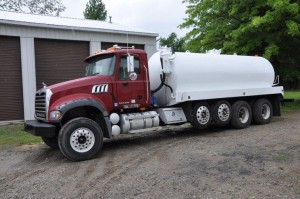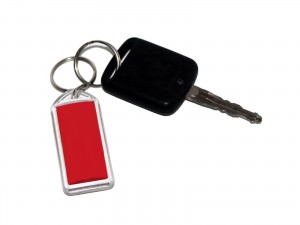
With the current boom in oil drilling and production happening across the United States, many companies are turning to used oilfield trucks to help cut costs. But, how do you know what you are getting is a valuable tool that will increase productivity—and not some clunker that will leave you in a mess when it comes time to get the job done? Here are six key tips to help you the next time you purchase a piece of used equipment.
Tip #1: Check the Fluids
If you are purchasing anything with an engine, it is important to check all fluids before deciding to buy the item. This includes the transmission fluid, engine oil, coolant, hydraulic fluid, and basically any type of fluid that is associated with the truck you are reviewing. Often, this is a great indicator of how well the previous owner maintained his equipment. Low or dirty fluids are a telltale signal of neglect or abuse, which is a bad sign of how the piece will be able to perform in the future. Furthermore, situations where there is oil in the coolant could be due to a much bigger problem-one you don’t want to inherit after your purchase.
Tip #2: Look Carefully for Welds, Rust, Cracks, Etc.

You will want to look over the equipment carefully for any welds, rust, cracks, etc. Often, a truck that was used and abused by a work crew will show signs of being broken and subsequently welded back in place. This creates weakness in the steel, which may or may not be a significant problem for you in the future. Some items may have hairline cracks that are difficult to see but never saw repairs, which then becomes your issue once you own the equipment and put it to good use. The bottom line is to be vigilant when it comes to looking at the physical condition of the item.
Tip #3: Review the Maintenance Log
This probably sounds like a simple enough idea, but you would probably be surprised how many equipment buyers overlook this step. Thoroughly evaluating an engine’s care by the existing owners includes taking into consideration whether or not the oil truck received proper maintenance throughout its use. However, if an owner cannot provide a log, take it with a grain of salt—sometimes logs accidentally get misplaced and sometimes they disappear on purpose. Use this information in conjunction with everything else you have evaluated about the truck or rig via other means to come up with a complete picture of the situation.
Tip #4: Start It Up

Starting up an engine is another step to do when purchasing used oilfield equipment. Does the engine sound right? Or is it making a racket, indicating the need for repairs either immediately or in the imminent future? A lot can be determined from paying close attention to the way a cold engine sounds on startup. Take notes and if there is any doubt, report your findings to a trusted mechanic first before signing any sort of purchase order or contract.
Tip #5: Fan the Fumes
Exhaust systems can give you good insight into an engine’s remaining lifespan. Smoke that is black, white, or blue can indicate equipment that has either received poor maintenance or needs repair. While many repairs associated with these engine exhaust colors can be minor, it is important to weigh whether it is a chance worth taking in regards to the amount you will have to spend to get it taken care of.
Tip #6: Just Ask
While some oilfield truck sellers aren’t exactly forthcoming about what a truck has been through, others are completely honest. Take the time to talk with the seller about what you are looking for, what they are offering, and how the two fit together. In some cases, if there are problems with the item, you might be able to negotiate a lower price based on these findings.
Of course, some of these examples will not apply to the exact piece of equipment you are looking at, but they all have great merit to them. While a trailer might not have an engine that needs evaluation, it probably has some sort of hydraulic system or gate that still requires a thorough review. Be vigilant and make sure what you are buying is truly an asset for your company-and not a juicy ‘ol lemon waiting to cause problems in the future.